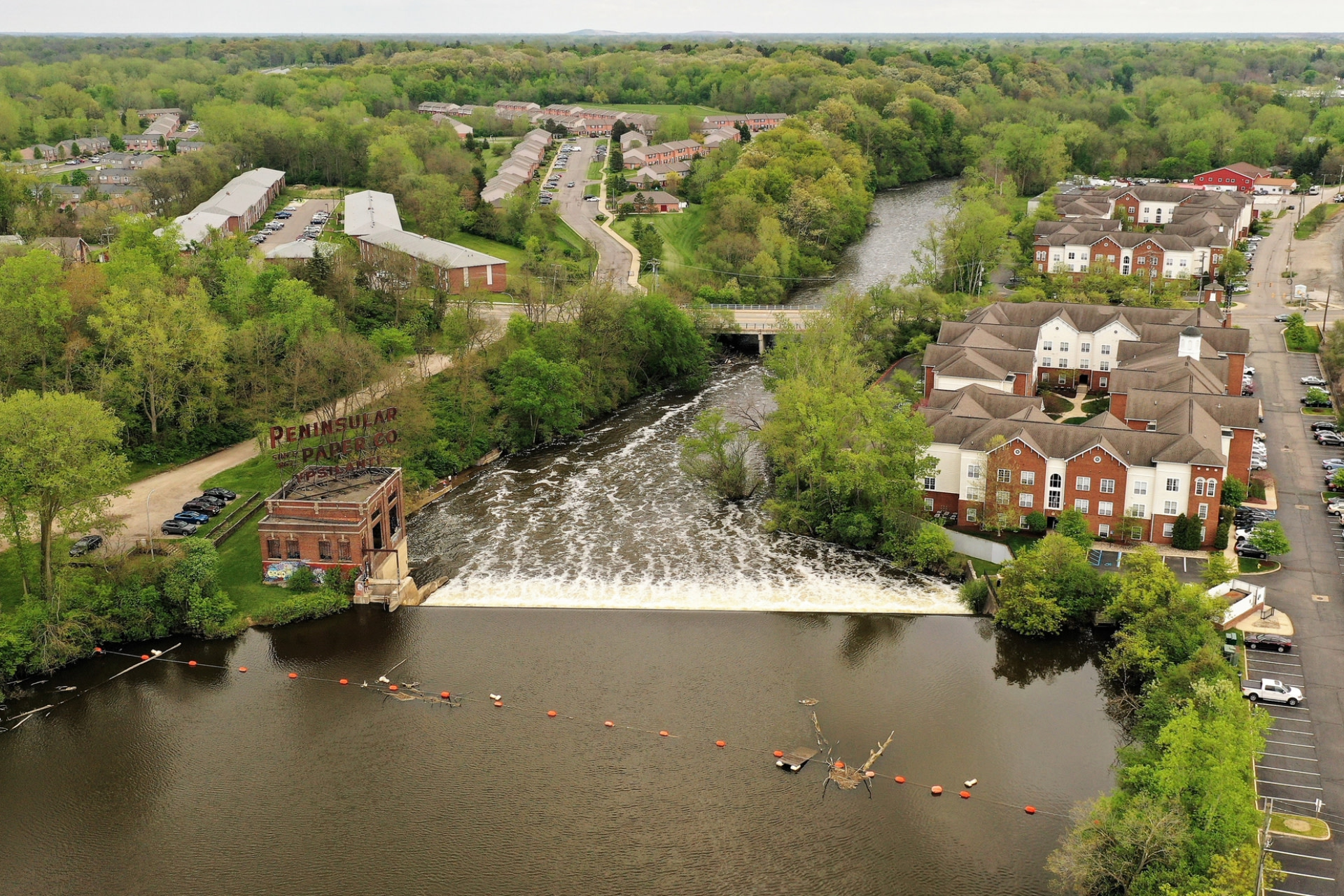A "high-hazard" structure has been lurking in the Huron River and damaging the local community for over 150 years — and now, it's finally getting removed.
The city of Ypsilanti, Michigan, is on the cusp of securing enough grant funding to remove the Peninsular Dam. The dam was built in 1867, and it's been identified as dangerous because of its age and environmental impact.
The Huron River Watershed Council is managing the effort, which was awarded an $800,000 federal grant from the U.S. Fish and Wildlife Service, aimed at improving fish passage and strengthening local economies. It was also able to secure $1.6 million from Michigan's Dam Risk Reduction Program, and plans are coming together to finish dam removal and restore the surrounding river by fall 2026.
"This project is a major step towards a safer and more resilient Ypsilanti," said Daniel Brown, a watershed planner with the HRWC. "Removing this high-hazard dam is vital for our community's well-being, especially as we face the challenges of climate change."
While they seem like a simple way to collect potable water or power, dams have long been controversial for their negative economic and environmental impacts. They interfere heavily with fish migration, disrupting their ability to spawn and anchor local food chains.
Dams also amass sediment over time, serving as a "feeding ground" for methane-producing microbes and a graveyard for chemical pollutants. Aside from exposure risks, the sediment literally blocks the flow of clean water from reservoirs, interfering with the very reason dams are built.
With the removal of dams such as the Peninsular Dam, according to The Eastern Echo, regions can "improve river safety, revitalize fish habitats, and create a healthier recreational space for the community."
Once the dam is gone, Ypsilanti is looking forward to improved outdoor recreation and access to the Huron River. Officials are considering projects including a kayak launch and an expansion of a nearby park.
"The dam's location in a busy urban area offers high visibility," Brown said. "Combined with the potential for significant ecological restoration in a crucial section of the river, this could become a park with dramatically increased use and enjoyment by the community."
Join our free newsletter for cool news and cool tips that make it easy to help yourself while helping the planet.









